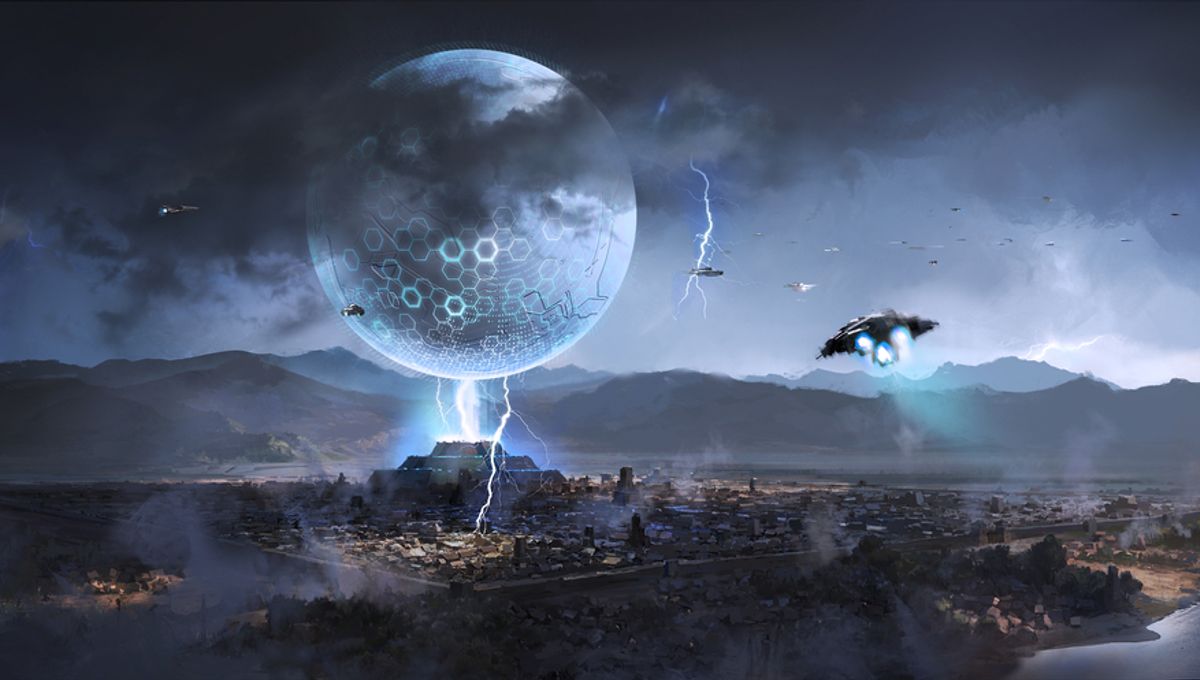
In Doctor Who, an alien species called the Silurians exists – technologically-advanced humanoid reptiles who lived long before humans, going into hiding and being basically undiscovered again until everyone’s favorite time-traveling alien came along in his phone box. So far, so not science. However, in 2018 two University of Cambridge scientists named their paper – The Silurian hypothesis: would it be possible to detect an industrial civilization in the geological record? – after the fictional species.
Published in the Journal of Astrobiology, the paper does not argue that there was a technologically-advanced species long before humanity, but proposed the interesting hypothetical question of whether it would be possible to find “geological fingerprints” of a bygone civilization that expired millions of years ago.
“One of the key questions in assessing the likelihood of finding such a civilization is an understanding of how often, given that life has arisen and that some species are intelligent, does an industrial civilization develop?” they write in the paper.
“Humans are the only example we know of, and our industrial civilization has lasted (so far) roughly 300 years (since, for example, the beginning of mass production methods). This is a small fraction of the time we have existed as a species, and a tiny fraction of the time that complex life has existed on the Earth’s land surface.”
“This short time period raises the obvious question as to whether this could have happened before.”
As well as being an interesting hypothesis to ponder, seeking to answer the question could also help us search for signs of advanced civilizations on exoplanets. As the paper points out, humans have left notable marks on the planet that will certainly last for many years in our (relatively short) time altering the planet’s climate and ecosystems. However, that doesn’t mean that these changes will be detectable millions of years from now. In fact, the record we leave – for instance, in the sediment – may only be a few centimeters thick. This may be true even if we survive for much longer than our current age.
“The longer human civilization lasts, the larger the signal one would expect in the record,” the team write. “However, the longer a civilization lasts, the more sustainable its practices would need to have become in order to survive. The more sustainable a society (e.g. in energy generation, manufacturing or agriculture) the smaller the footprint on the rest of the planet. But the smaller the footprint, the less of a signal will be embedded in the geological record.”
The team discuss other markers we could leave for a species millions of years from now (or that may have been left for us). Some will be indistinguishable from naturally occurring phenomena such as the Cretaceous and Jurassic ocean anoxic events – but others would be clear signs that we were here, and we absolutely trashed the place.
“We speculate that some specific tracers that would be unique, specifically persistent synthetic molecules, plastics and (potentially) very long-lived radioactive fallout in the event of nuclear catastrophe,” the team write.
“Absent those markers, the uniqueness of the event may well be seen in the multitude of relatively independent fingerprints as opposed to a coherent set of changes associated with a single geophysical cause.”
The team does not give a definitive answer in the paper, but suggest that if there were other ancient advanced species to be found, they would be discovered through exploration of elemental and compositional anomalies in the sediment record.
“While we strongly doubt that any previous industrial civilization existed before our own, asking the question in a formal way that articulates explicitly what evidence for such a civilization might look like raises its own useful questions related both to astrobiology and to Anthropocene studies,” they conclude.
“We hope that this paper will serve as motivation to improve the constraints on the hypothesis so that in future we may be better placed to answer our title question.”
Source Link: The Silurian Hypothesis: Might Earth Have Hosted A Sophisticated Civilization Millions Of Years Before Our Existence?